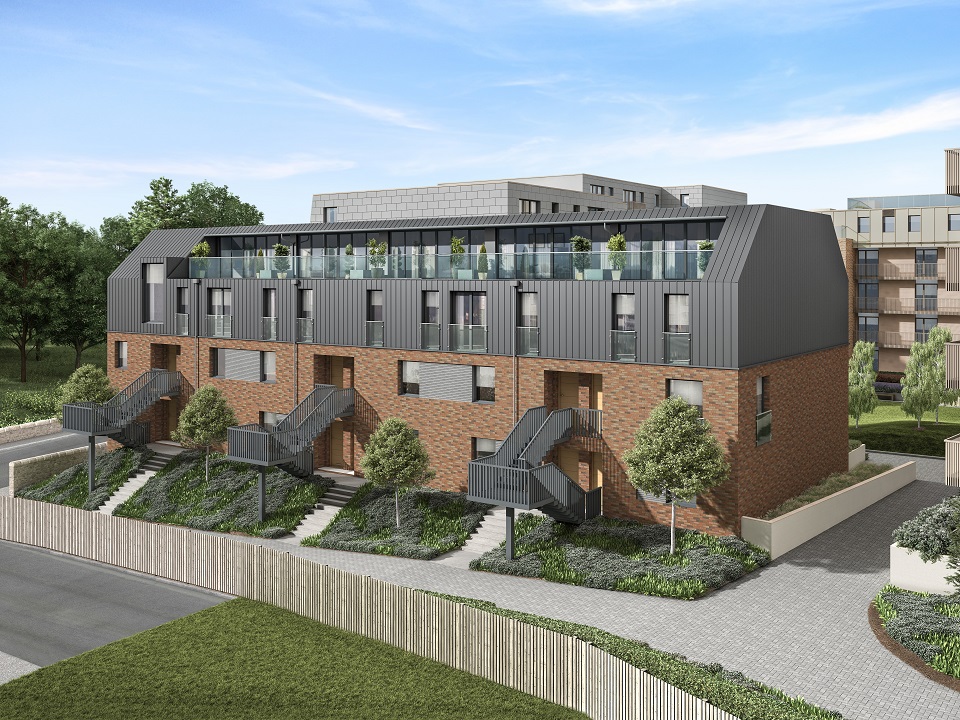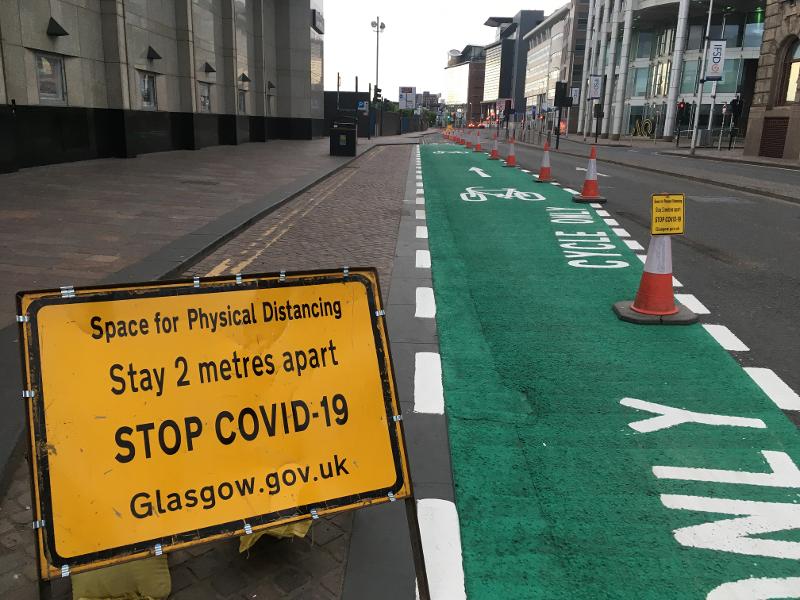Building Briefs – May 28th
- Artisan launches new Canonmills Garden phase with pledge to support NHS Scotland
Home sales at Artisan Real Estate’s Canonmills Garden development in Edinburgh are continuing apace despite the challenging sales environment imposed by the coronavirus lockdown.

A combination of smart technology and the human touch is helping Canonmills Garden to remain front-of-mind with home buyers, with 82 sales and reservations now confirmed out of the 135 apartments still available for private sale.
Responding to the unparalleled restrictions in the face-to-face selling process following lockdown, Artisan has invested in its digital marketing platforms creating an innovative customer visitor experience that is not only boosting home sales but is also supporting Scotland’s health service. This month sees the much-anticipated release of the Sophora homes’ phase – a collection of one, two and three-bedroom luxury apartments with views towards Edinburgh Castle and into a courtyard garden.
To reflect the unique challenges of current circumstances, Artisan is using this sales opportunity to launch its ‘Hope and Hold’ scheme. Rather than paying the usual reservation fee of £1000, purchasers are being asked to donate £250 directly to the Scottish NHS to secure their home, then paying the £750 balance once lockdown is over.
- Sustrans funding boost to support physical distancing across Glasgow
Glasgow’s Space for Distancing initiative has been awarded £3.5 million from Sustrans Scotland to support physical distancing measures across the city and help to stifle the spread of COVID-19.

Funded by the Scottish Government and administered by Sustrans, the ‘Spaces for People’ programme will provide additional space for physical distancing in public places for people to walk, wheel or cycle while COVID-19 restrictions remain in place.
The money will go towards temporary travel infrastructure in the city centre, city neighbourhoods and active travel routes, and will form a key part of the city’s strategy for economic recovery. These measures will help to ensure sufficient space on footways for businesses and their customers while the requirement for 2 metres of physical distancing between people remains in place.
This funding award follows on from the recent closure of Kelvin Way to vehicles, and the creation of the Clydeside cycle lane which runs from Saltmarket to the Clyde Arc, and is designed to ease pressure for pedestrians on the Clyde Walkway.
In practice, Space for Distancing will see footways widened at pinch points to facilitate safer pedestrian movement and easier access to community facilities and public transport hubs. Consideration will also be given to the positioning of temporary strategic cycling routes to highlight cycling as an attractive, viable commuting choice.
Areas with high pedestrian footfall such as Byres Road, Partick, Shawlands, Maryhill and Dennistoun have already been identified as places where short-term measures can be introduced. Other neighbourhood hubs such as Pollok, Drumchapel, Easterhouse and Castlemilk will also be examined for suitability.
Longer term, and once restrictions begin to ease, it is anticipated that walking and cycling will continue to be considered a safe and convenient mode of transport that benefits health and air quality.
- HMP Barlinnie ‘no longer fit for purpose’
HMP Barlinnie is “no longer fit for purpose”, according to prison inspectors.
HM Inspectorate of Prisons for Scotland found that the prison’s holding cells, “first condemned 25 years ago”, are still in use and that they may fall foul of human rights law.
HMIPS also referred to the “outdated and antiquated building design”. Furthermore, inspectors highlighted the “severe state of disrepair” of the medical rooms.
The report said that while “strenuous efforts were being made to maintain hygiene and cleanliness” in the jail, “inspectors were concerned to see rats in the grounds”.
Barlinnie housed 1,489 prisoners at the time of the visit, 45.8 per cent more than it was intended for.
The report said: “The Inspectorate had deep concerns about the adverse environmental conditions in the healthcare facility, compounded by the impact of the high population numbers on the delivery of care. The severe state of disrepair of the rooms used to deliver healthcare that were seen throughout the inspection, and the consequent risk posed to both patients and staff requires urgent attention.”
A government spokesperson said the concerns of the inspector were taken seriously. They added: “A total of £68 million has been committed to improve the infrastructure of Scottish prisons this year and we remain committed to the development of a new fit for purpose replacement for HMP Barlinnie.”










